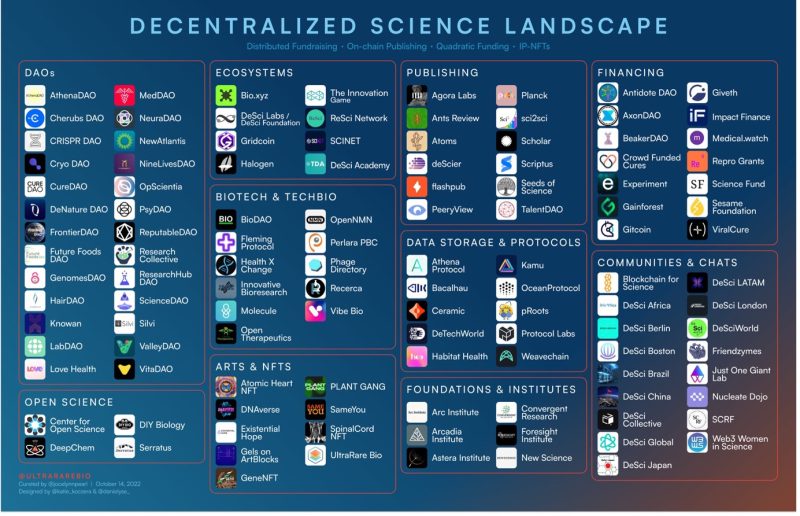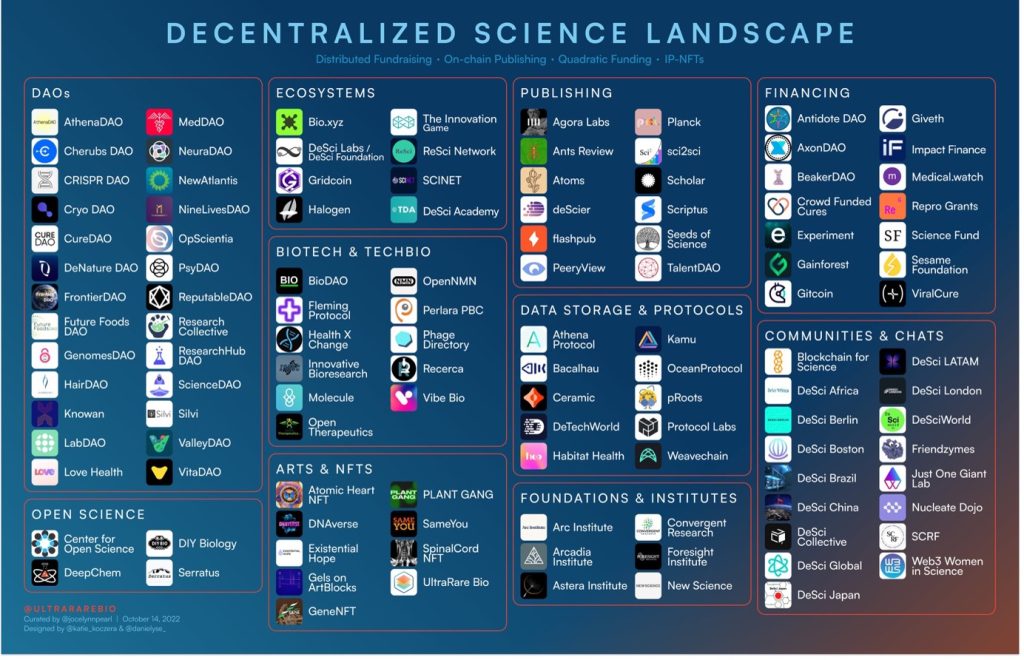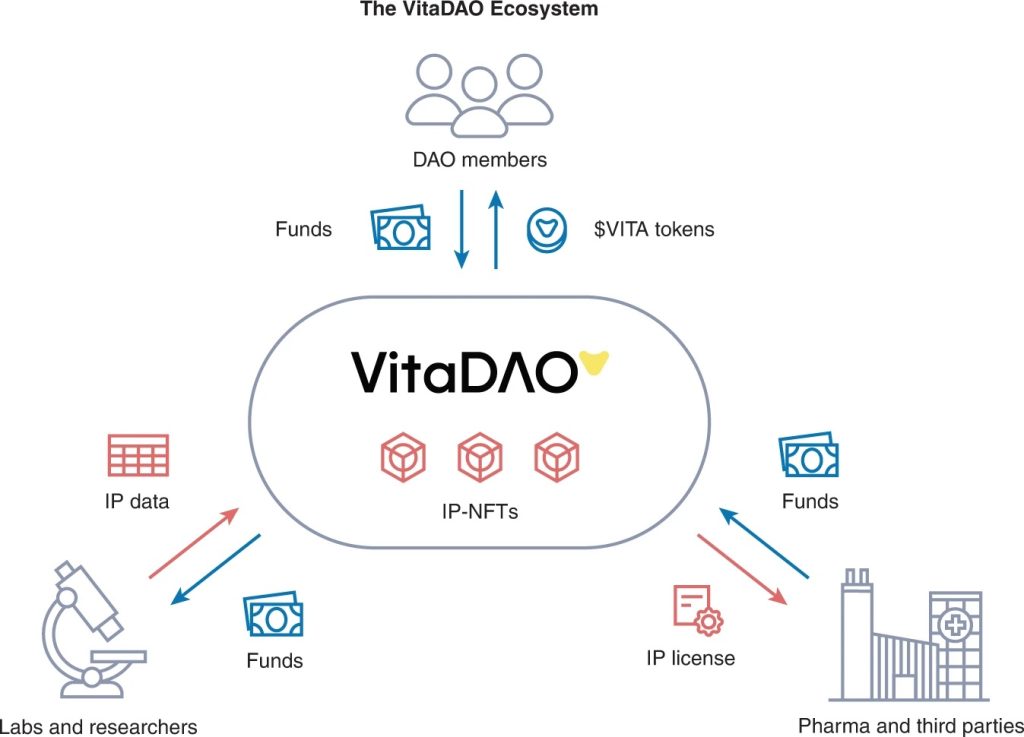
Decentralized Science – should Science be crypto-fied?
8 min read
The sharing economy and crowdsourcing has already penetrated our real world, say Uber, Airbnb, GoFundMe, etc. Sharing properties such as cars, houses, cash may have been normalized in our modern society. How about sharing responsibilities, governance, and other assets such as intellectual property (IP) rights and even scientific knowledge?
The pain(s)
“Science takes time.” Being an experimentalist, trust me, that’s a true statement. Apart from failed experiments, lost motivation, long protocols, there are many other inefficiencies in the long process of performing and translating science. Where are the major chokepoints? Where is the real pain?
With time, traditional, or in my opinion – archaic, systems governing science and guiding scientific research for centuries is no longer meeting modern-day needs in supporting essential advances. Just to list the few areas excruciatingly affected by current systems, they are the notoriously and obnoxiously long processes for funding and publishing. Yet, these two pain points are at the heart of independent scientific careers.
Many, myself included, are starting to question: why is science such a painful process? Does it have to be this way? Deep-seated players in science include institutionalized funding sources, giant biotech and pharma companies, and publishing journal empires. The concentration of powers in the hands of a selected few, controlling the direction and progress of science, is extremely problematic. While this monolithic infrastructure may be undisruptable, the creation of alternative and complementary systems will enable redistribution of power.
Can decentralizing these organizations solve the fundamental problems? Can shared responsibilities, community-driven and -based governance help science move faster and better?
The relief?
What is Decentralized Science, or DeSci for short?
Others have explained this better than I can, so I’m quoting from the articles referenced below. DeSci is “the process of scientific investigation leveraging web3 technologies”. In line with the Open Science movement, “DeSci is a movement that aims to enhance scientific funding, unleash knowledge from silos, eliminate reliance on profit-hungry intermediaries such as publisher conglomerates, and increase collaboration across the field.” It uses blockchain and web3 technologies to “build public infrastructure for fairly and equitably funding, creating, reviewing, crediting, storing, and disseminating scientific knowledge”.
Crypto, blockchain, web3, NFTs are the hot and sexy words of current times. If you are a beginner like me, these DeSci Basics and how DeSci actually uses blockchain tools might be helpful to get you up to speed.
> I will explore the DeSci approach to funding and publishing in my later posts – coming soon!
Visions of Decentralized Science
The main objective of DeSci is “to make science more open, collaborative, and accessible by solving existing problems in the current scientific system such as publishing, funding mechanisms, and access to resources”. By decentralizing institutional influence and enabling contributions from all citizens, including individuals with no scientific background, such ecosystem lowers the barriers for communal participation and ease the entry for early career investigators. This in turn holds “the potential to foster innovations, improve research funding, and greatly facilitate collaborations between researchers and the scientific community.”
Another vision of DeSci is to overcome restrictions from political and societal acceptance of radical ideas or hypothesis through science-focused Decentralized Autonomous Organizations (DAOs). For example, PsyDAO undertakes psychedelic research, which has been highly stigmatized by politicians and societies. PsyDAO aims to further scientific understanding on how we can safely exploit underutilized psychoactive drugs such as LSD, psilocybin, ayahuasca, cannabis, as effective therapies for treatment-resistant diseases, while democratizing access and making psychedelics unmonopolizable within the decentralized framework.

Too good to be true?
Is DeSci just another buzzword that overpromises? Tech solutionism is a common syndrome in our modern tech world, where we believe that technology is the solution to everything. It is easy to fall into tech ideologies, especially when science is at the forefront of breakthroughs.
While still in its infancy, the DeSci movement is well-intended and targets important research bottlenecks. Major goals of new blockchain and web3 technologies in “promoting transparency, enhancing security, and expanding community-driven approaches to how our society functions” are well-aligned to address these problems in today’s research world.
It may be too early to judge the success of such cryto-based approaches in democratizing science. DeSci working models may also be more suited for research areas that are hyped up, futuristic sounding and attractive to online groups and public interests. For instance, longevity research focused VitaDAO, a pilot test platform of a Swiss-based web3-powered company, Molecule, is already gaining some momentum with a huge fundraise recently. Only time will tell whether mutualism is achievable with contributions from enthusiastic and diverse communities within the web3 environment.

Resistance to change
The early days of DeSci movement transpired with little inputs from established academic communities. It is not surprising that the culture and communities in academic science may be resistant to change, especially if they are putting their hard-fought careers at stake without verified securities that DeSci promises. However, it is crucial for like-minded scientists from diverse disciplines to be part of this movement that is highly intertwined with the future of research.
While science is placed into the experimentation of metagovernance, as a scientist myself, rather than having a wait-and-see attitude, I would readily partake and answer to the call to join the DeSci movement. I just submitted a project proposal to VitaDAO. How about you?
> More coming soon on my next post on the DeSci approach to funding!
> Check out existing projects and how to get involved on the DeSci Wiki.
Et cetera
If you want to learn more, and potentially go down the rabbit hole on this topic, below are some references that you can hop on.
Read:
- DeFrancesco L, Klevecz A. Decentralized investor communities gain traction in biotech. Nat Biotechnol. 2022;40(9):1310-1315.
- Is Desci the Future of Research? By Samuel Akinosho
- A Guide to Desci, the Latest Web3 Movement by Sarah Hamburg
- A Guide to Decentralized Biotech by Jocelynn Pearl
Listen:
- The DeSci Podcast: Exploring the Decentralized Science Reformation
- UltraRare The Podcast – A podcast at the intersection of science and web3. Learn about the builders behind the decentralized science movement.
- Spark with Nora Young podcast: Tech solutionism, mutual aid and cooperatives
queerioushazel
Queer | Vegan | Scientist studying aging | Exploring writing | Curious about everything
-
Definitely a very interesting topic! Expontum (https://www.expontum.com) is another similar site that can be thrown into this group too.

3 comments